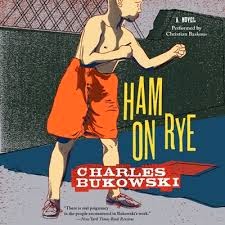 I was a bit
confused as to why there weren’t very many references to food but by the end of
the novel I was well aware that this family is living through the great depression,
poor and most of the children were ill-fed. I felt bad for Henry (the main
character) when he was in high school he had terrible acne that
blistered and oozed puss when they burst. GROSS, I know. His acne had gotten so bad he had to leave
school for a while to seek treatment. He had an 8:30 appointment with 40-50
people waiting, no guarantee to see a doctor and if you leave you lose your
spot. Here in Kalamazoo we have a dental
clinic geared to the unemployed and low income families. You have to be there by 7:30am and there is
always a line that starts way before 7:30. It’s
a first come first serve basis and if you leave you lose your spot and have to
come back the next day as well. This
part was interesting for me to read because the author is referring to his life
back in the 1930’s and the poor is still being treated the same way today.
I was a bit
confused as to why there weren’t very many references to food but by the end of
the novel I was well aware that this family is living through the great depression,
poor and most of the children were ill-fed. I felt bad for Henry (the main
character) when he was in high school he had terrible acne that
blistered and oozed puss when they burst. GROSS, I know. His acne had gotten so bad he had to leave
school for a while to seek treatment. He had an 8:30 appointment with 40-50
people waiting, no guarantee to see a doctor and if you leave you lose your
spot. Here in Kalamazoo we have a dental
clinic geared to the unemployed and low income families. You have to be there by 7:30am and there is
always a line that starts way before 7:30. It’s
a first come first serve basis and if you leave you lose your spot and have to
come back the next day as well. This
part was interesting for me to read because the author is referring to his life
back in the 1930’s and the poor is still being treated the same way today. There was one statement that really stood out for me and it said “I guess the only time people think about injustice is when it happens to them”. This is so true. I know some wealthy people who ride pass Loaves and Fishes or the Salvation Army and haven’t even thought about giving to the poor or less fortunate. Here I am, head just barely above water giving to these organizations. I do it because I care and one day it could be me in need. We talked in class how restaurant workers are striking and asking for a pay increase of up to $15 per hour. I was quick to say “they don’t deserve that much, flipping burgers requires no education and no skills”. But I wasn’t saying that when I made $9 buck trying to take care of a kid and pay rent. So in other words, whether it’s our situation or not we should try to make a difference in the lives of others.


